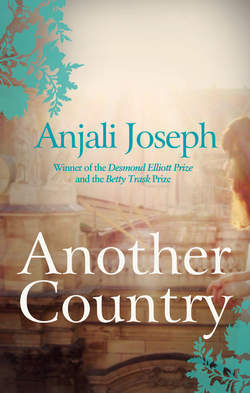Читать книгу Another Country - Anjali Joseph - Страница 8
ОглавлениеChapter 4
Leela in a dark grey coat, dreaming on the escalator at St-Michel as it rose towards the air. An African man, bald, with a thick neck, had been staring at her on the train. He got off when she did. She’d looked back, uncertain, finally smiled to affirm she meant no harm, for he appeared irate. Suddenly a hand closed over hers on the rail. She jumped.
A deep voice behind her. ‘You’re African, aren’t you?’
‘What?’ She pulled her hand away, moved up a step, turned to look. It was the man from the train, thickset and angry.
‘You’re African, aren’t you, you little bitch?’ He leant in closer.
‘No.’
‘You little snob. You’re a half-caste.’
‘Fu— Leave me alone,’ she said. She darted away and climbed two steps at a time till the top. A slim birch tree burst out against the sky. She stood near the newspaper kiosk, shifty, waiting for the others. Six, hadn’t they said six o’clock when they’d arranged to meet? They’d filed out of an interminable meeting for new and old teachers, and the three of them had gone to a café. She went into a telephone booth and dialled her answering machine. No message. Again she lurked, watching the passing European kids, and the French ones with their platform white sneakers, drainpipe jeans, and immensely long scarves.
‘Sorry, sorry, sorry, sorry!’
Leela must first have looked annoyed, then laughed, for Kate, slightly taller than she, was peering down, a Pierrot, thin, white-faced, with black brows pulled together in comical angst. When Nina, small, rosy-cheeked, blonde, arrived soon after, they discussed where to eat, then walked across the river back towards the Marais. Leela had seen a restaurant near St-Paul. On the way, Nina told them about her collocataire, Isabelle, and about the man she’d met at a concert a week earlier. ‘I told my mother about it, eh, and she said, “I hope you remember you’re not just representing yourself, you’re representing your country.”’ She burst into laughter. ‘I think she was telling me not to be a slapper.’ Leela tried to imagine her own mother, thin, intense, saying, ‘You’re representing your country’.
Once across the river, they walked down an eighteenth-century street and into a pretty, almost twee square. There were restaurants on each side, spreading out awnings towards the trees next to cast-iron lamp posts. Strings of tiny bulbs gave the square a fairy-tale glimmer.
They were hungry, and sat outside under one of the tall, soldier-like heaters.
Nina asked, ‘So where are you living, Kate?’
‘I’m – it’s really funny, I’m living with these two sisters, in the eighteenth, near the Batignolles?’ Kate’s inflection was upward, she widened her eyes and made clown-like faces of ‘do you understand?’ that Leela found endearing. ‘I found it through this friend of mine. Her boyfriend knows these two girls, Amandine and Eloise. Their father left them on their own for a year, and they’re dead young and they needed the money, so they’ve rented out a room.’
‘Where’s he gone?’
Kate wrinkled her nose. ‘It’s mental. He’s gone on a sailing trip round the world with this woman he met or something. He gave the girls ten thousand francs and said have a good year. And Eloise is doing her licence, Amandine is doing her maîtrise. They’re quite hippie-like though, it’s cool. You should come and meet them. I think we’re going to have a fête one of these days.’ She laughed.
‘What’s your place like, Leela?’
Leela began to tell the story. Dusk had fallen, and it was colder. A sharp wind blew in the place, and the leaves bowled about, low flitting shadows. The air became blue and the light powdery.
Returning to the studio, she was amused, as though hearing again remarks they’d made through the evening. She felt the glow of laughter, of the wine, and the absurd, pretty lights in the vines around the bistro entrance. She wasn’t, after all, alone. She opened the small door, let herself in, and turned on the lights, harsh against the night. The single window in the living area glinted; across the courtyard she saw the light had been left on in the corridor toilet. She was tired; instead of undressing and getting into bed, she moved about dreamily, taking out a book but not looking at it, playing a song to which she was at present attached. She thought of smoking, and didn’t. Tiredness always took her this way, and the moment just after society found her as though congratulating or encouraging herself. See? Wasn’t it all right? But this conversation gave way to a tiredness that became more profound, and a sense of the smallness, strangeness, and meanness of the studio, its cunning provisional arrangements, like the platform bed and the folding chair. She didn’t go to bed for some time, for she didn’t look forward to waking up in the silence of this strange cubbyhole, and it was the same silence, at first apparently interrogatory, but in no time again indifferent, unchanging, that met her now.
